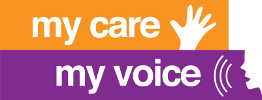This page gives you information on some of the family issues around HIV, and where you can seek help and advice.
Donate now: Support our work
Donate now: Support our work

People living with HIV can have children and have fulfilling family lives, but sometimes they may need some advice and support.

This page gives you information on some of the family issues around HIV, and where you can seek help and advice.
Women face many of the same concerns and issues as men living with HIV, such as concerns around their health, disclosure, discrimination and financial worries. However there are some areas relating to HIV that are particular to women, or affect them differently to men.
HIV can affect your menstrual cycle, particularly if you have a low CD4 count, leading to heavy or irregular periods. It can also affect your fertility, in some cases leading to an early menopause. Women living with HIV are more likely to have gynaecological problems, so it is important that you have regular sexual health screening and annual smear tests.
If you are on treatment you may be unable to use some hormonal contraceptives such as the pill, so it's necessary to get some advice on possible drug interactions. There is some evidence to suggest that women experience body fat changes as a result of some HIV medication differently to men, experiencing more fat gain in their breasts and waists. Women have been less likely to be included in clinical trials on HIV medication to men, so it can be difficult to know about potential differences in side effects.
Many women after an HIV diagnosis go on to have fulfilling emotional and sexual relationships. However there are some who fear or experience gender based violence and may stay in abusive relationships fearful their partner may disclose their HIV status. If you experience domestic abuse, there are organisations that can offer support and advice, such as The National Centre for Domestic Violence.
You can get further information from NAM's booklet HIV and Women. Positively UK offers support, information and runs a series of groups for women living with HIV. Pozfem is the national network of women living with HIV, membership is open to all HIV positive women. The SHE Programme offers peer support sessions and an information website for women living with HIV in the UK.
Conception can be a particular area of concern for people living with HIV if their partner is HIV negative. The standard recommendation for such couples is to practice safer sex (using a condom) to prevent HIV transmission from one partner to the other, but, naturally, this generally also prevents pregnancy.
However, there are a range of options available to assist couples to conceive safely, including self-insemination, donor sperm and sperm-washing as discussed in Safer Conception: Assisted reproduction options for people living with HIV. These assisted reproduction techniques can help achieve safer, successful conception for sero-discordant and -concordant couples alike. However, not all assisted conception options are widely available to people living with HIV across the UK, and in many cases will be prohibitively expensive.
The role of HIV treatment is also being increasingly discussed as a preventive tool for HIV transmission, and studies have shown that HIV transmission rates are extremely low when a person is adhering to treatment, their viral load is undetectable and both they and their partner are STI free. NAT recommends discussing this with your doctor and you can also read our report, HIV treatment as prevention - Towards a Consensus on the Impact of ART on HIV Prevention Strategies, for background information.